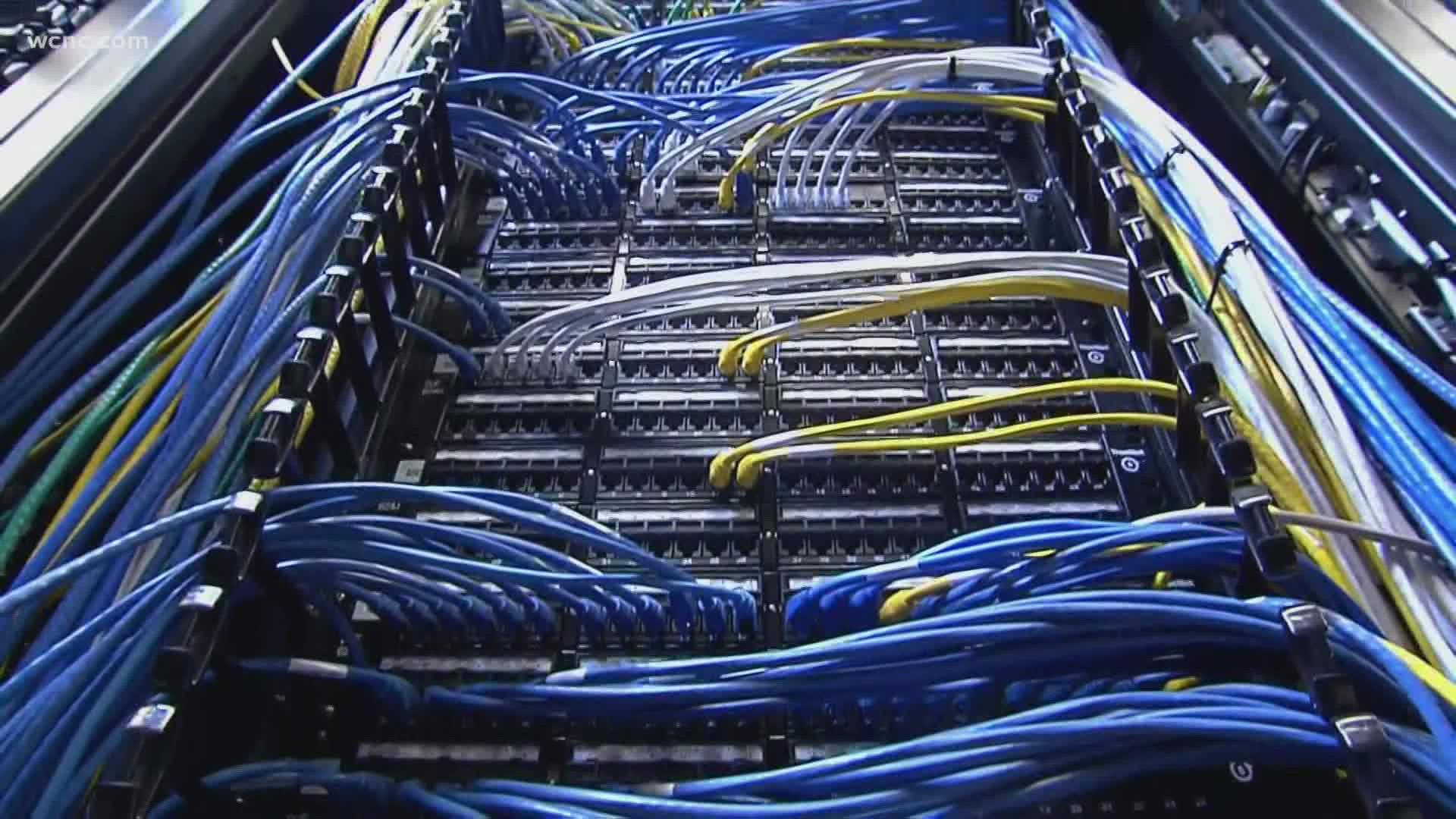CHARLOTTE, N.C. — As tensions build with Russia, the Department of Homeland Security is sounding the alarm about potential Russian cyberattacks here in the United States.
The Federal Government is urging every organization, business, and government agency to act now and watch for signs of Russian activity in their networks.
Every organization and business is at risk. Cyberattacks are taking down businesses, banks, even hospitals.
“We’re seeing billions of dollars lost every day," cybersecurity expert Nick Powers said.
Cyberattacks are nothing new to the Charlotte region.
Back in 2017, hackers attacked Mecklenburg County, freezing everything from online applications for marriage licenses to the property records website.
PREVIOUS COVERAGE: Dozens of Mecklenburg Co. files being held for ransom by hackers
Then in May of 2021, the Colonial Pipeline, which cuts through the Charlotte area, temporarily shut down causing gas prices to soar.
“That was a very targeted attack because they knew the pay could be quite a bit more," Powers said.
Schools also felt the impacts.
Last year, Central Piedmont Community College was the victim of a ransomware cyberattack that canceled classes for a week.
More recently, in December, Rowan-Salisbury Schools were victims of a cyber incident that impacted many internal programs and every Windows-based device on the district's network.
Powers said big and small businesses are potential targets for cyberattacks, and nothing is off-limits. In fact, small businesses are often the most vulnerable.
“They’re an easier target because they’re less sophisticated," Powers said.
According to the National Cyber Security Alliance, 60% of companies go out of business within six months after falling victim to a data breach.
“They’re not going in there saying, 'I want a million dollars in ransom,' they're going in there saying, 'I want $5,000,' because these small businesses could potentially afford a $5,000 bounty," Powers said.
There are three main tips to avoid cyberattacks.
1. Be careful what you click on.
“Number one thing is don’t click on links in emails unless you absolutely know they are coming from someone you know," Powers said.
2. Turn on multi-factor authentication on all devices.
The extra layer of protection is worth the extra step.
3. Don't overshare on social media.
“A lot of hackers actually use social engineering to essentially penetrate a business by going through weak links of people," Powers said. "People personally, they need to be responsible for their own cybersecurity hygiene.”
Contact Lexi Wilson at lwilson@wcnc.com and follow her on Facebook, Twitter, and Instagram.

